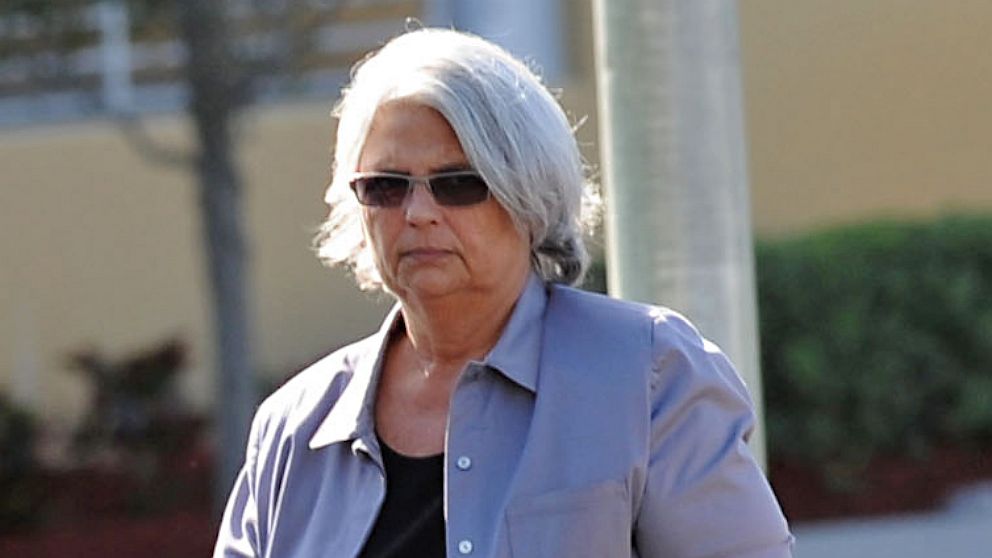Bestselling Author Jude Deveraux Scammed Out of $17 Million by Psychic Fraudster
Between 1991 and 2008, bestselling romance novelist Jude Deveraux was drawn into a long and elaborate web of deception that would eventually become one of the most high-profile psychic fraud cases in the United States. What began as a meeting with a woman claiming spiritual insight evolved into a 17-year relationship in which Deveraux surrendered millions of dollars, precious personal items, and her trust, all under the belief that she was engaging in legitimate spiritual work. The woman at the center of this deception was Rose Marks, a self-proclaimed psychic and member of a large South Florida family involved in fortune-telling businesses.
The case would later reveal the deep personal and financial toll on Deveraux and other victims. Prosecutors alleged that Marks used manipulation, fear, and false promises to control her clients, ultimately defrauding them of tens of millions of dollars. This article provides a detailed account of how the fraud unfolded, the tactics used, and the aftermath of one of the most infamous psychic con cases in modern times.
Background on Jude Deveraux
Jude Deveraux was already an internationally known romance author by the early 1990s. Her novels, known for their sweeping plots, historical detail, and strong female characters, had earned her both commercial success and a devoted readership. At the time she met Rose Marks, Deveraux was experiencing personal turmoil, including emotional struggles and later the tragic death of her young son. This vulnerability made her receptive to someone offering guidance, hope, and comfort.
Deveraux was not inexperienced in life or business—she had built a successful career and was financially well-off—but the combination of grief, personal challenges, and the persuasive personality of Marks created an environment where manipulation could thrive.
Meeting Rose Marks

In 1991, Deveraux was introduced to Rose Marks in Fort Lauderdale, Florida. Marks presented herself as a spiritual advisor with the ability to read energy, remove negative influences, and guide people through complex life issues. She came across as compassionate, confident, and deeply intuitive. Marks offered services that went beyond standard fortune-telling—she claimed she could communicate with spirits, cleanse harmful energies, and influence outcomes in the physical world through spiritual rituals.
Deveraux would later testify that Marks quickly became not just an advisor but a central figure in her life. Marks positioned herself as someone who could help with personal and emotional matters, as well as protect Deveraux’s future success.
The Methods of Manipulation
From the outset, Marks used classic hallmarks of psychic fraud—techniques designed to build dependency, create fear, and establish the psychic as the only solution to the client’s problems.
1. Emotional Hook Through Personal Loss
One of the most significant events Marks exploited was the death of Deveraux’s young son. Marks claimed to be able to communicate with his spirit and even suggested she could facilitate a “soul transfer” to bring him back in another form. Such promises are designed to override skepticism, as they target the deepest emotional needs of a grieving parent.
2. The ‘Cleansing’ of Money and Valuables
Marks told Deveraux that money was the root of evil and needed to be spiritually cleansed before it could be used. Over the years, Deveraux handed over millions in cash, luxury items, and other assets under the belief that they were being purified or invested spiritually for her benefit.
3. Long-Term Psychological Conditioning
The fraud spanned nearly two decades. Marks reinforced the idea that Deveraux’s problems could only be solved through continuous spiritual work, which required ongoing payments. Any doubt was met with warnings that negative forces could harm her health, relationships, or career if the work stopped.
4. Fabricated Evidence
Marks sometimes used letters and communications supposedly from famous figures or deceased loved ones to convince Deveraux of her psychic abilities and her unique connections. This added a layer of perceived legitimacy to the scheme.
Financial Losses
Over 17 years, Deveraux surrendered an estimated $17 million to $20 million to Marks. This was not a single lump sum but rather a steady transfer of wealth, sometimes in large amounts, other times in smaller, frequent transactions.
The payments were often framed as investments in spiritual rituals, the purchase of special items, or deposits into accounts that would later be returned after the “spiritual work” was complete. In reality, prosecutors would later show that Marks used the money for her personal benefit and to support her family’s businesses.
Isolation from Outside Influence
Marks discouraged Deveraux from discussing their relationship with others. This isolation is a key tactic in long-term fraud. By keeping outside voices away, Marks reduced the risk of anyone challenging her claims or warning Deveraux about possible exploitation.
She positioned herself as a confidante who understood things no one else could, deepening the dependency. Over time, Deveraux’s trust in Marks became so entrenched that even implausible claims were accepted without question.
The End of the Relationship
By the late 2000s, cracks began to appear in the arrangement. Deveraux started to realize that promised returns were not materializing, and some of Marks’s stories seemed inconsistent. Her eventual break with Marks was difficult, not only because of the financial losses but because of the psychological grip Marks had maintained for so long.
The emotional impact was severe. Deveraux later said she had been suicidal during part of this period, feeling trapped and ashamed of having been deceived.
The Federal Case
The FBI began investigating Marks and her family as part of a broader probe into psychic fraud rings operating in South Florida. In 2011, federal prosecutors charged Rose Marks with multiple counts of mail fraud, wire fraud, and related offenses.
The indictment alleged that Marks and her family defrauded multiple clients of more than $40 million combined, with Deveraux being one of the largest individual victims. The government’s case highlighted how Marks manipulated deeply personal vulnerabilities to gain access to large sums of money.
Trial and Conviction
In 2013, Marks went to trial in the U.S. District Court for the Southern District of Florida. Deveraux testified, recounting how she had been persuaded to part with millions and how Marks convinced her of supernatural abilities.
The trial lasted weeks, with prosecutors presenting extensive evidence of false claims, fabricated documents, and misuse of client funds. Marks’s defense argued that she truly believed in her work and that her clients willingly gave her money.
The jury convicted Marks on 14 federal charges, including fraud and money laundering. She was sentenced in 2014 to 10 years in prison and ordered to pay millions in restitution, including more than $17.5 million tied to Deveraux’s losses.
The Aftermath for Jude Deveraux
For Deveraux, the case was both a public and personal reckoning. Speaking about the experience, she acknowledged the shame and pain of being deceived but also the relief of seeing justice served.
Financially, while she had been successful enough to recover from the monetary losses, the betrayal left lasting scars. Emotionally, the experience was devastating, especially because it exploited her grief over her son’s death.
Professionally, Deveraux continued to write and publish novels, many of which still explored themes of love, trust, and betrayal—subjects she now knew in a far deeper and more personal way.
Broader Implications
The Marks case drew national attention to the issue of psychic fraud, particularly the legal challenges in prosecuting such cases. Fortune-telling itself is not illegal in most jurisdictions, but when combined with false promises, fabricated evidence, and significant financial loss, it can fall under federal fraud statutes.
It also highlighted how even highly intelligent and accomplished individuals can become victims when they are targeted at vulnerable moments. The case served as a cautionary tale about the dangers of unverified spiritual services and the psychological tactics fraudsters use to maintain control.
Conclusion
From 1991 to 2008 in Fort Lauderdale, Florida, Jude Deveraux’s relationship with Rose Marks evolved from spiritual guidance to a calculated scheme of financial and emotional exploitation. The case stands as one of the most notorious examples of psychic fraud in the United States, illustrating how personal vulnerability, trust, and long-term manipulation can result in devastating losses.
While justice was ultimately served through Marks’s conviction, the 17-year ordeal left an indelible mark on Deveraux’s life—a reminder that even the most successful and independent individuals are not immune to deception when it preys on the deepest parts of the human heart.
Discover more from City Towner
Subscribe to get the latest posts sent to your email.




